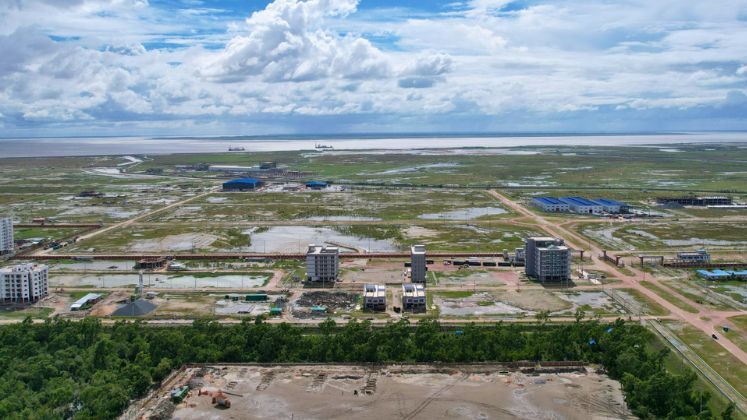

Investors operating in Bangladesh’s economic zones have expressed urgent demands for high-pressure gas supply, uninterrupted electricity, and permissions for captive power plants, amid rising utility costs and infrastructure concerns. The call for improved utility services was made during a high-level meeting with the Bangladesh Economic Zones Authority (BEZA) on 15th April in Dhaka.
The Executive Body of the Bangladesh Economic Zones Investors Association, led by President M A Jabbar, raised significant concerns over recent gas price hikes and tariffs imposed by the US Government. Investors warned that without essential services, industrial growth could be stunted and new investments deterred.
Aparup Chowdhury, CEO of the Bangladesh Economic Zones Investors Association, highlighted the alarming 33 per cent increase in gas prices for new industries, questioning how such hikes could facilitate the establishment of new industrial ventures.
In response, BEZA Executive Chairman Chowdhury Ashik Mahmud Bin Harun noted that gas pricing falls under the jurisdiction of the Bangladesh Energy Regulatory Commission (BERC) and is beyond his authority. However, he assured investors that their concerns regarding the need for uninterrupted gas and electricity supply within economic zones were being conveyed.
During the meeting, investors emphasised that while BEZA is prioritising utility services for Government economic zones, there appears to be a lack of similar plans for private economic zones. They called for a clear roadmap to ensure adequate utility services for private zones, as many factories in these areas are struggling to commence production due to shortages of gas and electricity.
Despite investments worth thousands of crores of taka, several factories remain idle due to insufficient utility services. BEZA had previously announced plans to ensure water, gas, and electricity supply in five prioritised economic zones within the next two years, including the National Special Economic Zone (NSEZ) in Mirsarai, Chittagong, and the Japanese Economic Zone.
The investors further called for the establishment of Water Treatment Plants (WTP) and Sewage Treatment Plants (STP) within the economic zones, as well as the development of sustainable road networks and other infrastructure for efficient goods transportation.
Additionally, discussions included pressing for waivers on service charges from utility providers, making leased lands bankable, and recalculating annual lease rentals only after all common facilities and utility services are completed and handed over to unit investors. They also sought a waiver of the 3 per cent tax on payments made against Letters of Credit (LCs) for polyester yarn.
As investors continue to voice their concerns, they maintain that the timely provision of essential services is crucial for the sustainability and growth of the industrial sector in Bangladesh.

